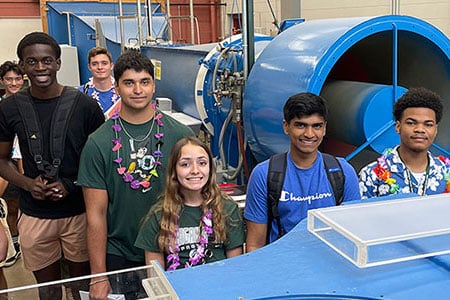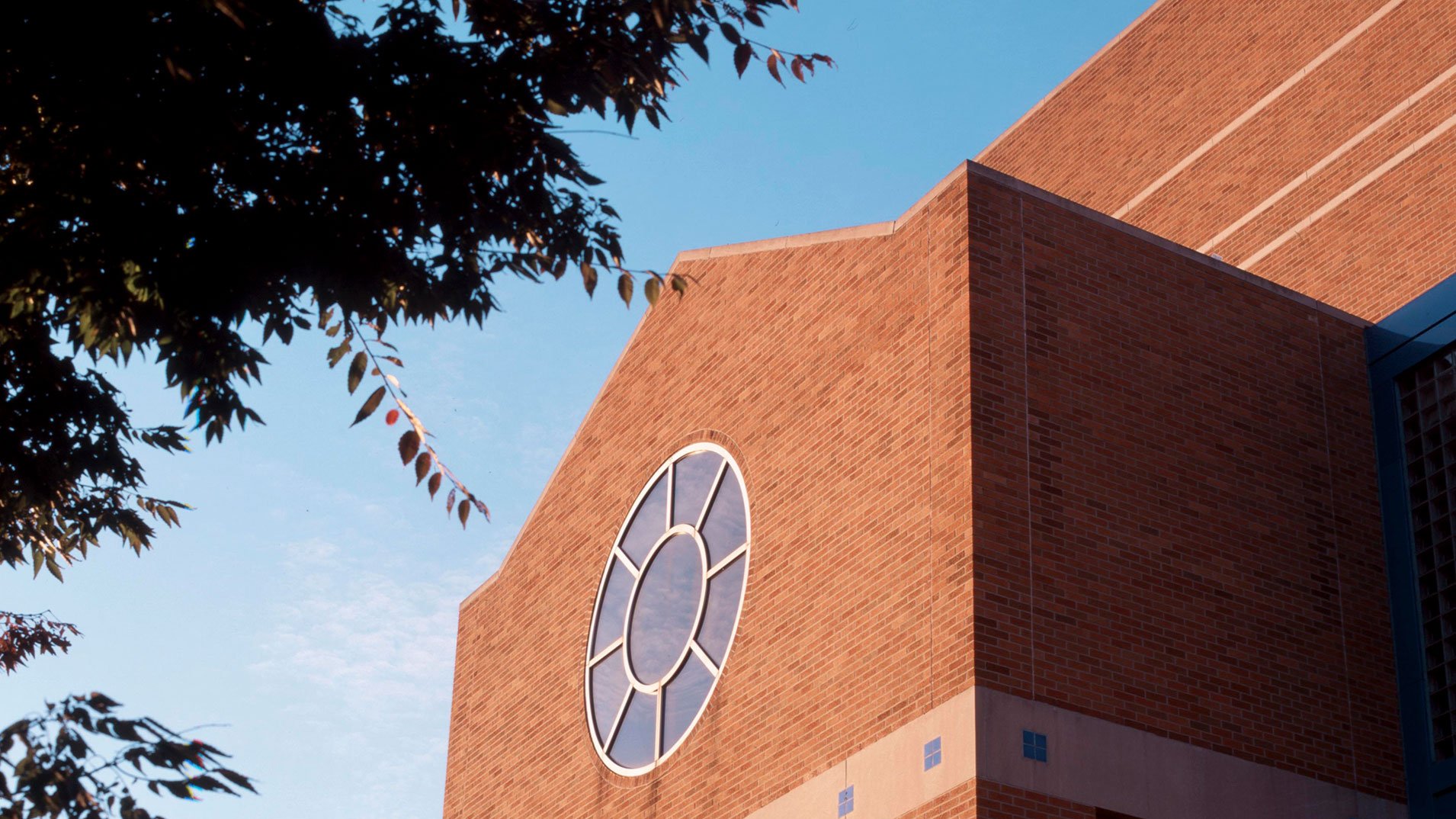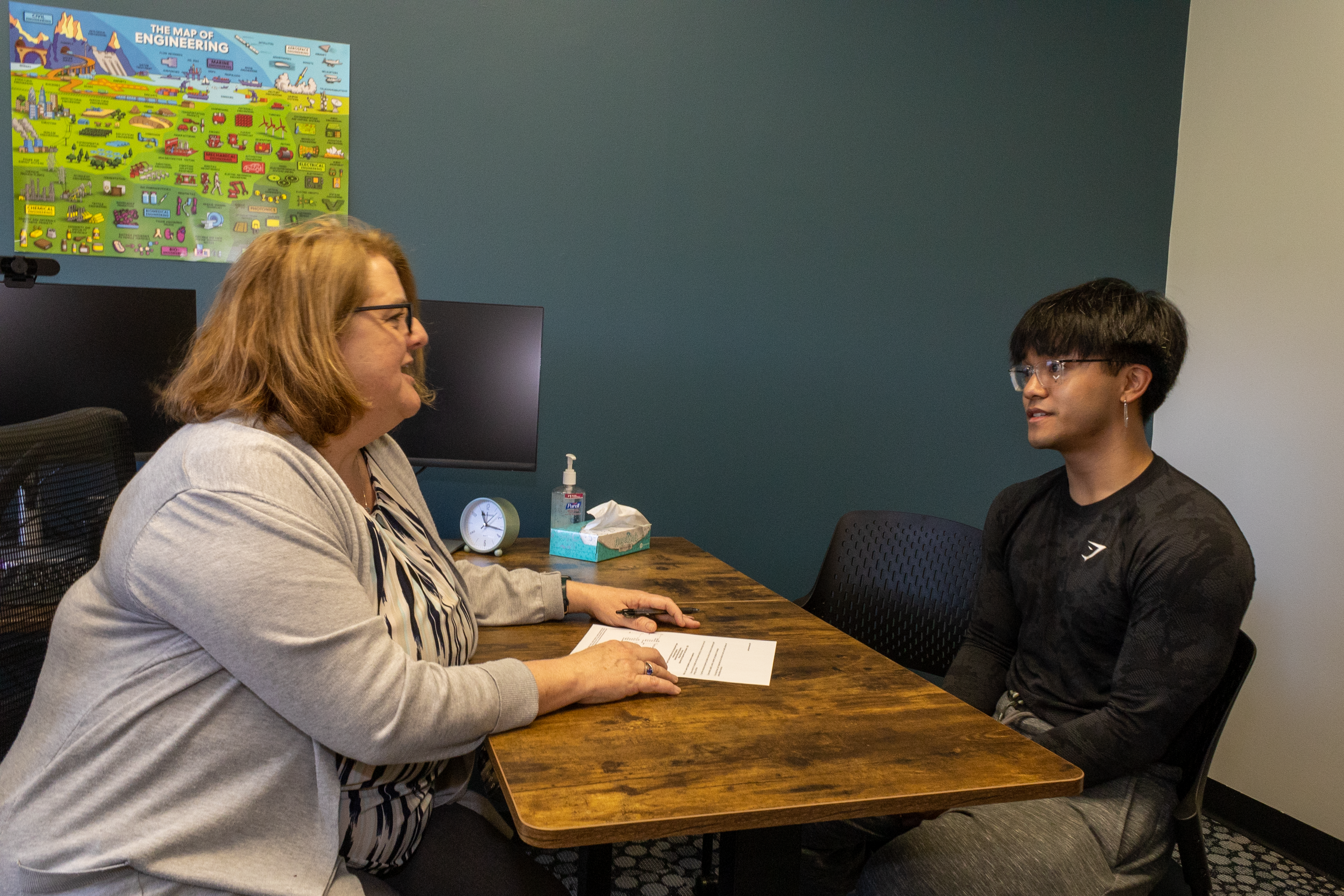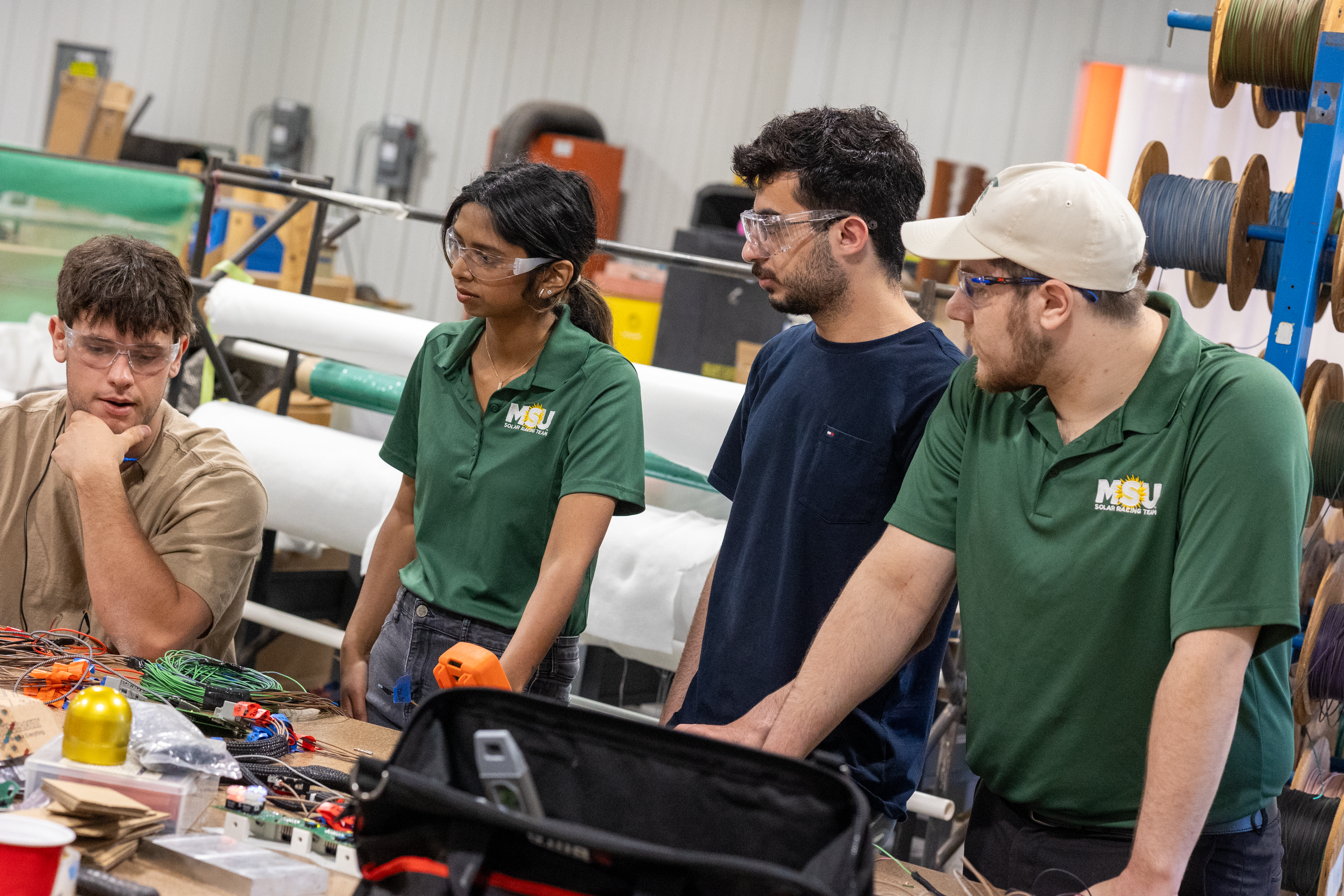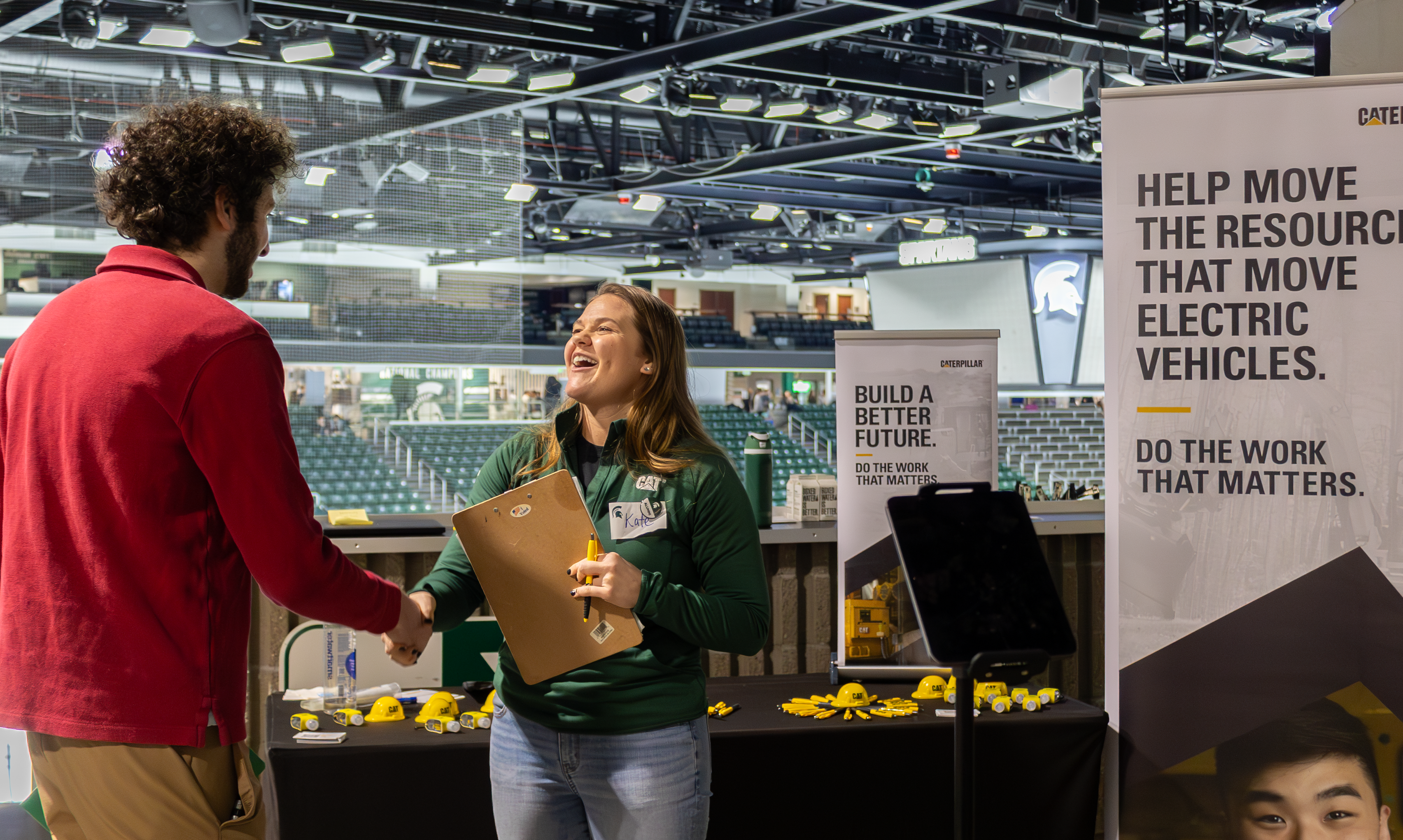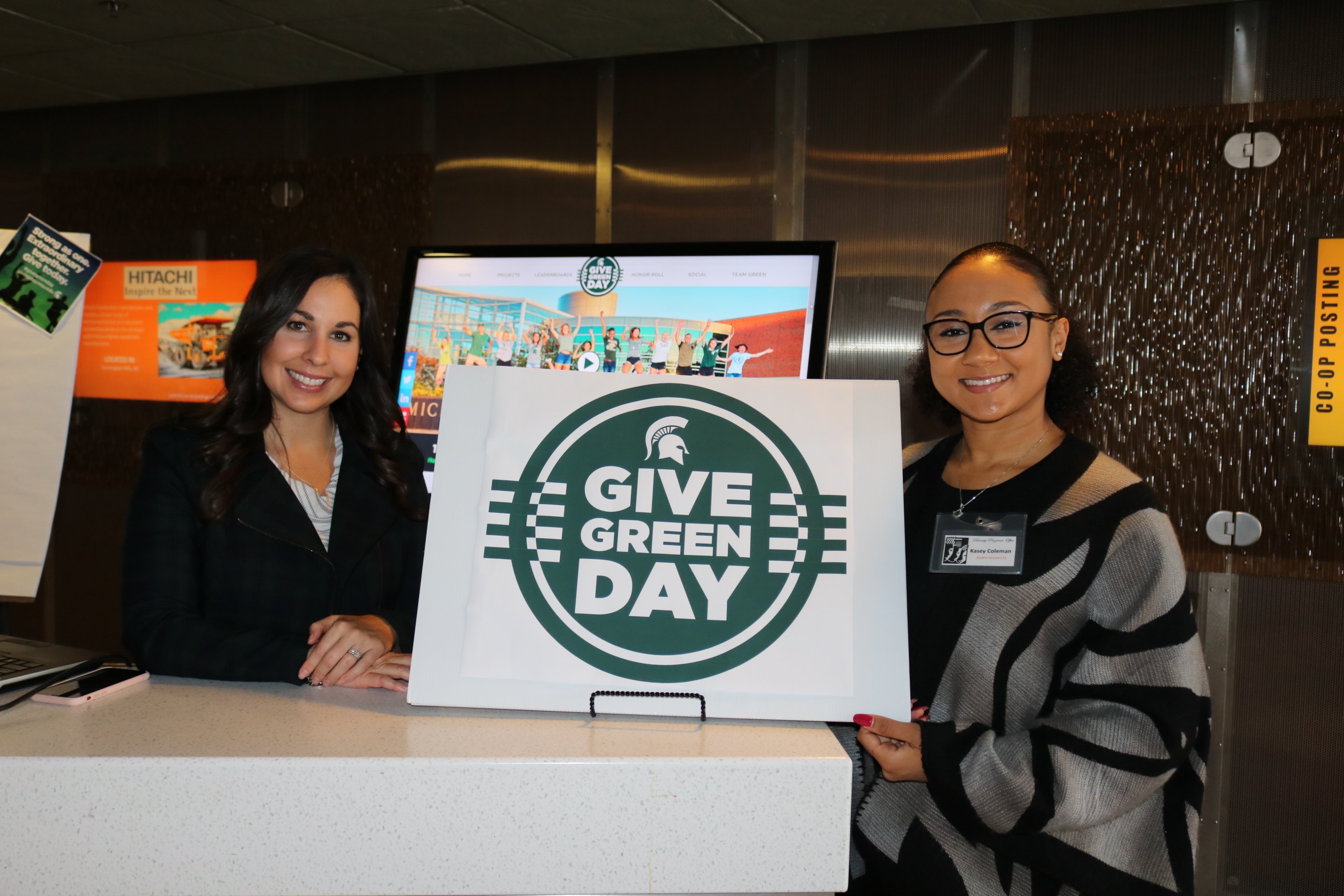For a second time, students passionate about the evolving space market had an unparalleled opportunity to learn from experts working on electronics designed to survive the harsh realities of space. And Michigan State University’s Green and White Council stopped in to see the results firsthand.
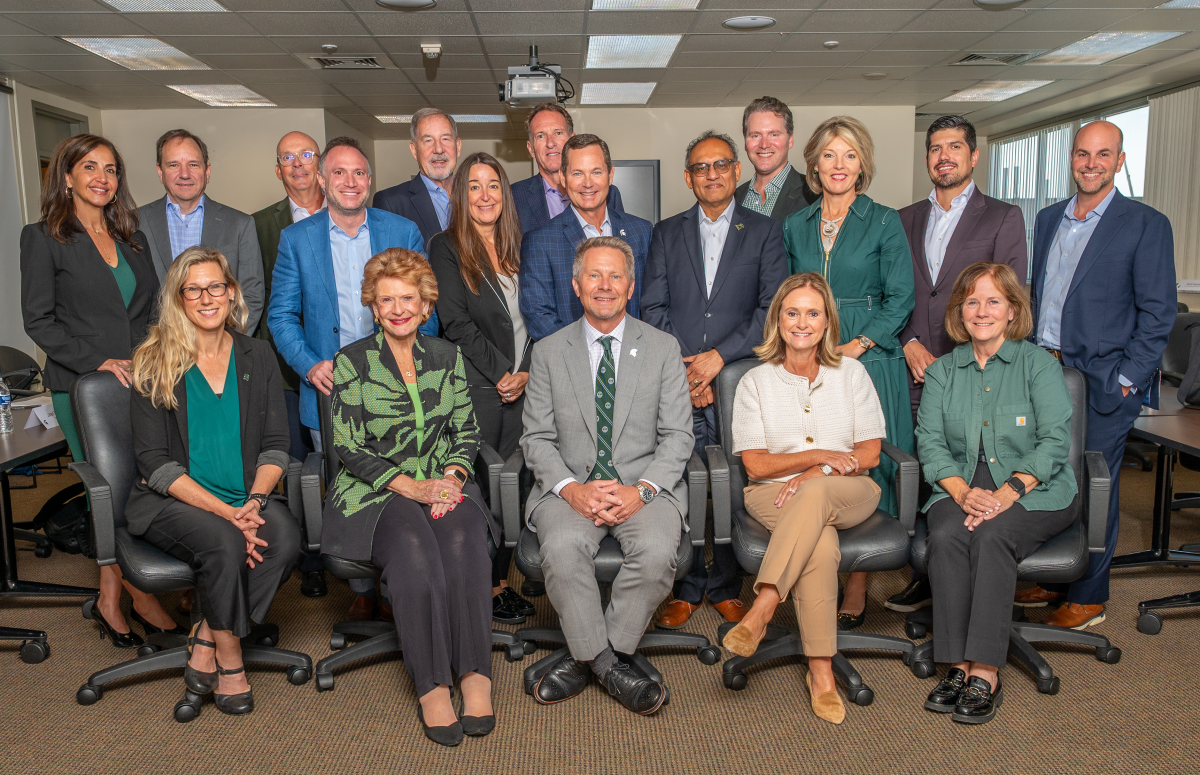
Hosted by leading engineers from Texas Instruments (TI) and engineers and physicists from Michigan State, eight electrical and computer engineering students from MSU and two visiting from Texas A&M participated in the second Single Event Effects (SEE) Radiation Testing Boot Camp – Sept. 11-13.
MSU Space Electronics Initiative, a multidisciplinary industry-based research center in the College of Engineering, sponsored the event in partnership with TI and the Facility for Rare Isotope Beams (FRIB) at MSU. The inaugural boot camp was held in January 2025.
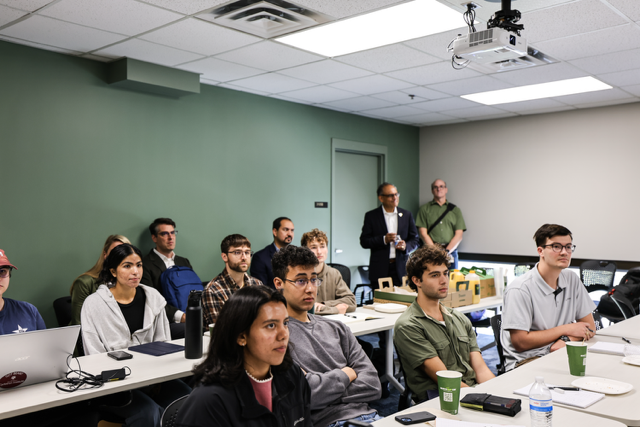
Students and facilitators had a special visit from members of the MSU Green and White Council, which includes some of Michigan’s foremost business and civic leaders. The council spent a full day with the College of Engineering and toured FRIB along with a stop at the boot camp to hear from participants and facilitators. As one of MSU President Kevin M. Guskiewicz’s signature initiatives, the council champions bold initiatives that amplify MSU’s role in workforce and economic development for the state and region.
“Student interaction with members of the Green and White Council gives us the chance to see how what we’re learning at MSU can be applied across different industries,” said Purva Mhatre, a sophomore in electrical engineering at MSU. “It also showed me how the skills I’m developing in my circuit labs and research work can directly translate into serving industry needs.”
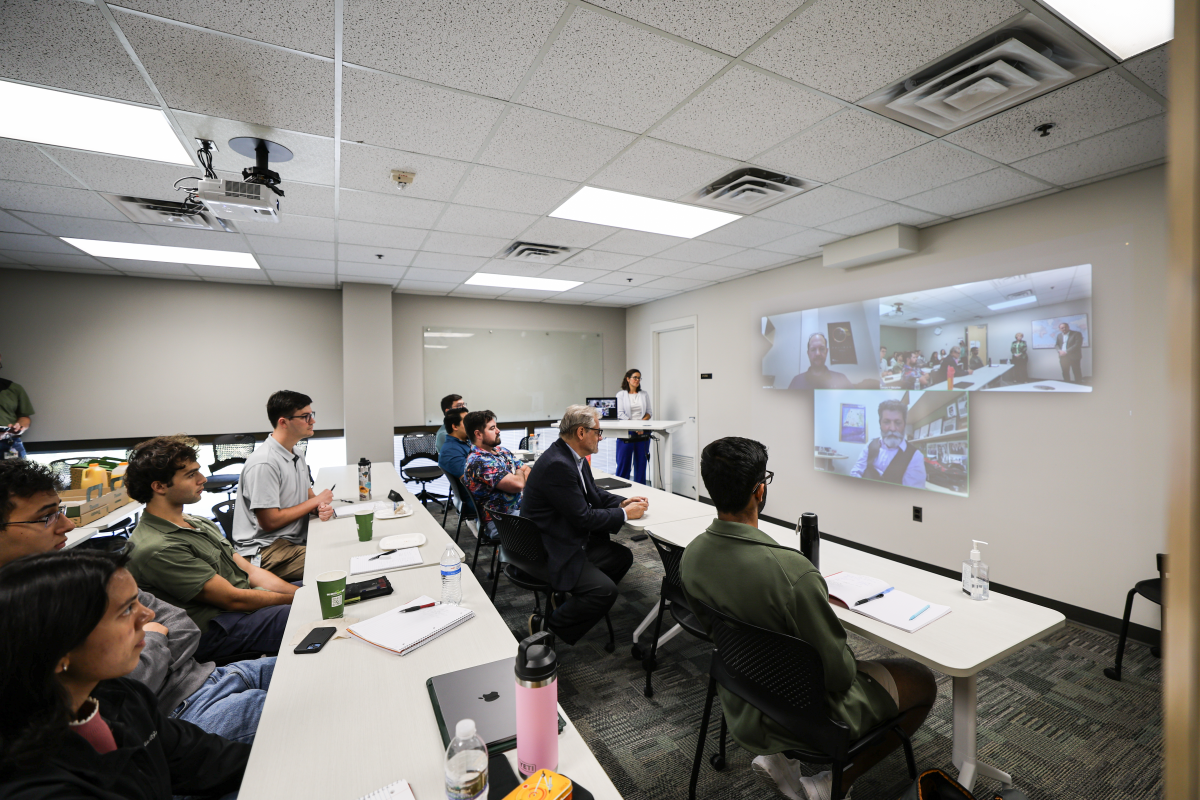
Held at the MSU College of Engineering and FRIB, boot camp participants learned through lectures and hands-on testing at the world-class nuclear science facility to better understand the role and importance of solid-state electronics in contemporary satellite design and construction. Students also learned about space mission applications and conducted experiments focused on testing radiation hardness of silicon integrated power circuits.
TI’s leading experts in Space Product validation and qualification, and Tyler Lew and Anthony Marinelarena from Space Power Product business, brought real-world context to the radiation testing and procedures while providing participants and council members with insight into the growing need for engineers with space electronics expertise.
“The space industry is booming,” said Jason Clark, Space Product Solution marketing lead at TI and boot camp lecturer. “We’re seeing more and more development from commercial and government partners and around the world. So, the pipeline of talent is critical not just for TI but for the entire industry.”
Green and White Council co-chairs Sanjay Gupta and Matt Elliott agreed that the impact of the boot camp experience for students, employers and researchers is an example to be followed.
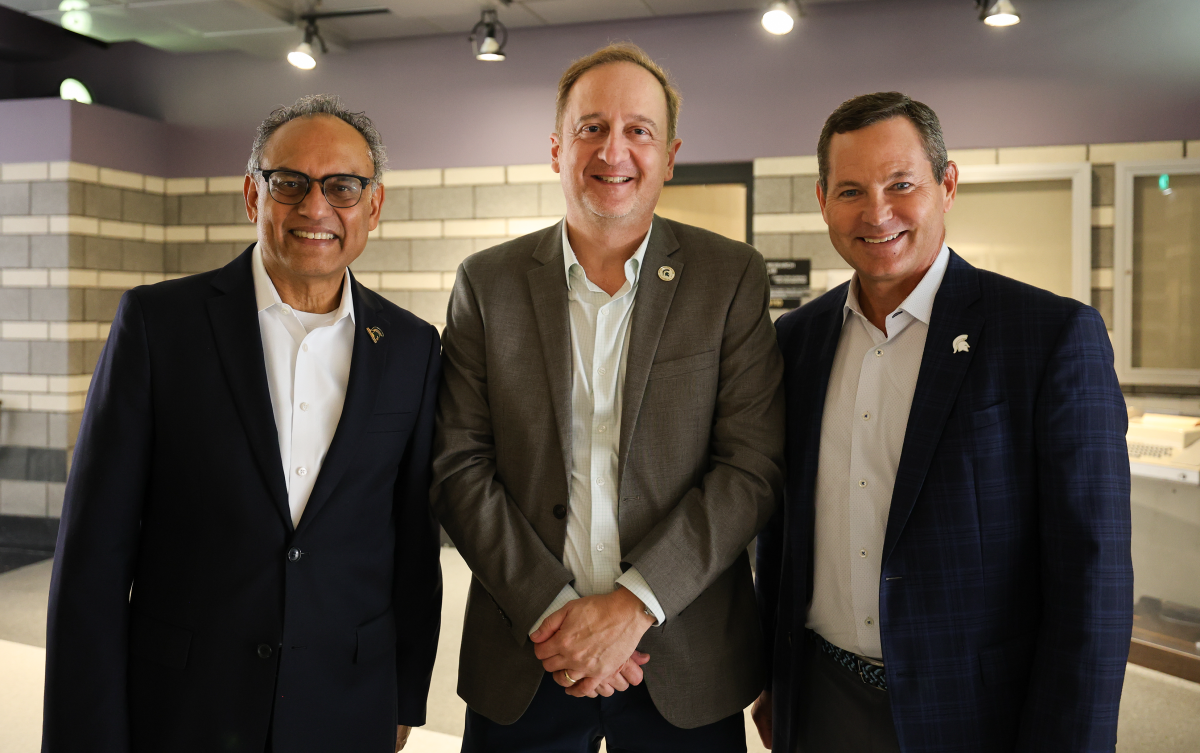
“As a council, our focus is on workforce and economic development for the State of Michigan, our region, and beyond,” said Sanjay Gupta, Eli Broad Professor in the Department of Accounting and Information Systems and Dean Emeritus of the Broad College of Business. “This space electronics boot camp is a perfect example of how essential collaborations between academia and industry are for preparing our students for the future of work and developing a talent pipeline to meet the emerging needs of industry.”
To prepare students from MSU and Texas A&M for interaction with TI and FRIB at the boot camp, Sergey Baryshev, associate professor in MSU’s Department of Electrical and Computer Engineering, provided instruction leading up to the experience.
“Being able to learn about Single Event Effects on semiconductor devices and being able to have hands-on experience testing devices is an experience that only a select few universities have,” said Grant Nelson, a Texas A&M engineering technology master’s student. Nelson is one of two students from the university who traveled to East Lansing for the boot camp. “This boot camp provides a great experience to learn from the engineers who are doing the Single Event Effects testing.”
Plans for future space electronics boot camps are underway.
About the Green and White Council
The Council is charged with developing talent for in-demand jobs across the state, equipping Spartans with skills of the future, connecting Spartans to great companies and careers in Michigan, and leveraging MSU’s cutting-edge research and intellectual property to propel Michigan’s economy.
About the MSU Space Electronics Initiative
The MSU Space Electronics Initiative is a multidisciplinary industry-based research center in the College of Engineering at Michigan State University. With a focus on design and testing of electronic devices, circuits, and systems for space applications, the strength of the MSU Space Electronics Initiative relies on strong interdisciplinary engineering and science talent of faculty, students, and researchers at MSU; unparalleled Facility for Rare Isotope Beams (FRIB) testing facilities at MSU; and knowledge and expertise of our industrial member companies.
About FRIB at MSU
Michigan State University operates FRIB as a user facility for the U.S. Department of Energy Office of Science (DOE-SC), with financial support from and furthering the mission of the DOE-SC Office of Nuclear Physics. Hosting the most powerful heavy-ion accelerator, FRIB enables scientists to make discoveries about the properties of rare isotopes in order to better understand the physics of nuclei, nuclear astrophysics, fundamental interactions, and applications for society, including in medicine, homeland security, and industry. User facility operation is supported by the DOE-SC Office of Nuclear Physics as one of 28 DOE-SC user facilities.
MSU College of Engineering Media and Public Relations page
